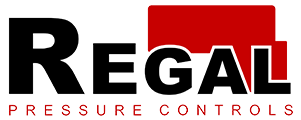Introduction: In a world where efficient resource management is becoming increasingly crucial, water plays a vital role. Whether for residential, industrial, or agricultural purposes, maintaining the proper water levels in tanks is essential. This is where water level sensors for tanks come into play, serving as indispensable tools for accurately monitoring and controlling fluid levels. In this article, we explore the significance, working principles, types, and applications of water level sensors for tanks.
The Significance of Water Level Sensors: Water level sensors provide real-time data on the amount of liquid within a tank, helping prevent overflows, shortages, and potential damage. These sensors enable intelligent control systems to optimize water usage and distribution, ensuring efficient utilization of this precious resource.
How Water Level Sensors Work: Water level sensors operate based on different principles such as ultrasonic, capacitive, pressure, and float-based mechanisms. The basic working principle involves emitting signals into the liquid and measuring the time taken for the signals to bounce back. By calculating the time taken and knowing the speed of sound in the liquid, the sensor can determine the fluid level accurately.
Types of Water Level Sensors:
- Ultrasonic Sensors: These sensors use sound waves to measure the distance between the sensor and the liquid surface. They are non-contact and suitable for a wide range of liquids.
- Capacitive Sensors: These sensors measure changes in capacitance as the liquid level changes. They are ideal for liquids with varying dielectric constants.
- Pressure Sensors: Pressure sensors gauge the liquid level based on the pressure exerted by the liquid. They are best suited for sealed tanks and closed systems.
- Float-based Sensors: Float sensors use a buoyant object that moves with the liquid level, activating a switch at specific levels.
Applications of Water Level Sensors:
- Residential Water Tanks: Water level sensors ensure that domestic water tanks are neither overfilled nor depleted, offering efficient water management for households.
- Industrial and Commercial Tanks: Industries use these sensors for managing process fluids, chemicals, and other liquids, preventing wastage and ensuring steady production.
- Agricultural Tanks: Farmers rely on water level sensors to manage irrigation systems, guaranteeing that crops receive the appropriate amount of water.
- Environmental Monitoring: Water level sensors contribute to flood monitoring, sewage systems, and environmental research, aiding in disaster management and resource conservation.
Benefits and Advantages:
- Resource Efficiency: Water level sensors prevent wastage by providing accurate real-time data, optimizing water use.
- Reduced Maintenance Costs: Proper water level monitoring prevents damage caused by overflowing tanks or running pumps dry, saving repair costs.
- Automation: These sensors enable automation of water-related processes, enhancing convenience and reducing manual intervention.
- Data-driven Decision Making: Water level data collected by sensors aids in making informed decisions regarding water usage, distribution, and conservation.
Conclusion: Water level sensors for tanks represent a crucial link between efficient water management and sustainable resource utilization. By accurately monitoring fluid levels, these sensors contribute to the preservation of this essential resource while providing economic benefits and operational efficiency in various sectors. In a world where responsible resource utilization is paramount, water level sensors serve as vital tools for both individuals and industries, ensuring that water is utilized judiciously and sustainably.
